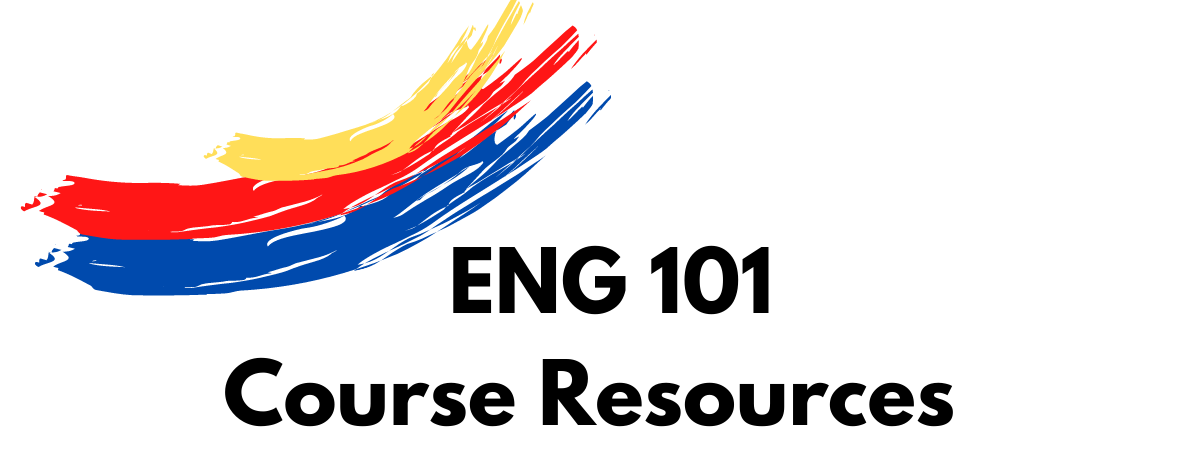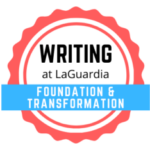
Course Description
3 credits; 4 hours
Fulfills “Pathways: Required Core”
In this course students write coherent essays in varied academic formats, both in and out of class, responding to culturally diverse materials and using appropriate technology. Students focus on critical and analytical skills through reading and listening and study aspects of argumentation including formulating theses; researching and identifying sources; evaluating and documenting sources; and communicating persuasively across contexts, purposes, and media. Admission is based on college placement test scores. The course meets in four scheduled classroom hours per week.
Prerequisite: CSE095/099, ENA/ENG/ENX099, ESA099, ENA/ENC101
Pathways Student Learning Objectives (Common Across CUNY):
- Read and listen critically and analytically, including identifying an argument’s major assumptions and assertions and evaluating its supporting evidence.
- Write clearly and coherently in varied, academic formats (such as formal essays, research papers, and reports) using standard English and appropriate technology to critique and improve one’s own and others’ texts.
- Demonstrate research skills using appropriate technology, including gathering, evaluating, and synthesizing primary and secondary sources.
- Support a thesis with well-reasoned arguments, and communicate persuasively across a variety of contexts, purposes, audiences, and media.
- Formulate original ideas and relate them to the ideas of others by employing the conventions of ethical attribution and citation.
Course Learning Objectives (Specific to LaGuardia):
- Introduce process-based writing, including prewriting, drafting, revising, editing, proofreading, critiquing, and reflecting.
- Enable students to read, write, and listen critically and analytically, including identifying a text’s major assumptions and assertions and evaluating its supporting evidence. As part of this process of inquiry and problem solving, faculty will familiarize students with the concepts of audience, voice, context and purpose.
- Provide students with opportunities to write clearly and coherently in varied academic genres, rhetorical modes, and forms of argumentation using standard written English (SWE).
- Provide early assignments that allow students to practice utilizing summation, paraphrase, quotation, and citation to create well-reasoned arguments.
- Provide later assignments that enable students to develop research skills, most importantly the evaluation and synthesis of primary and secondary sources.
- Enable students to formulate original ideas and relate them to the ideas of others by employing the conventions of ethical attribution and citation and avoiding plagiarism.
- Enable students to complete essays that will increase in complexity, ranging in length from 600 to 1500 words.
Program Learning Objectives
**This is informational as these 2 objectives are embedded in the Course Learning Objectives. These do not need to appear on syllabi. These objectives are assessed annually by the WPAs and Composition Committee and shared with the Assessment Leadership Team.**
PLO 1: Evaluate and synthesize sources using summary and/or paraphrase and/or quotation.
PLO 2: Engage critically and analytically with a text’s major assumptions and assertions.
Assessment in ENG 101
Coming Soon
Course Resources
Accessible ENG 101 Syllabus Template
Rachel Boccio and Tara Coleman created this optional accessible ENG 101 Syllabus and Course Schedule. You can personalize the template to include your specific section information.
Faculty-Facing Introduction To Sheet–About Teaching This Course
Student-Facing Introduction To Sheet–About Taking This Course
Latest ENG 101 Posts
- Developing Research Questions for ENG 101 by Paul Fess
- Weekly Notes & Check-In Assignment for ENA / ENG 101 by J. Elizabeth Clark
- The Revision Process and Applied Grammar for ENG 101 by Misun Dokko
- Developing Thesis Statements, Topic Sentences, and Ideas for ENG 101 by Lalit Bajaj
- Devising Research Questions / Using Questions to Derive Topics and Statements of Argument for ENG 101 by Kelly I. Aliano
- OER Assignment: Rhetorical Analysis of Whopper Virgins for ENG 101 by Christine Marks
- How to Analyze an Op Ed, Class Exercise for ENA 101 by Monica B. Sanning
- Research Paper for ENG 101 Based on Ari Honarvar Essay by Alice Rosenblitt-Lacey
- Group Revision Activity by Candace Elise Hoes
- Fear of Writing by Irwin Leopando


